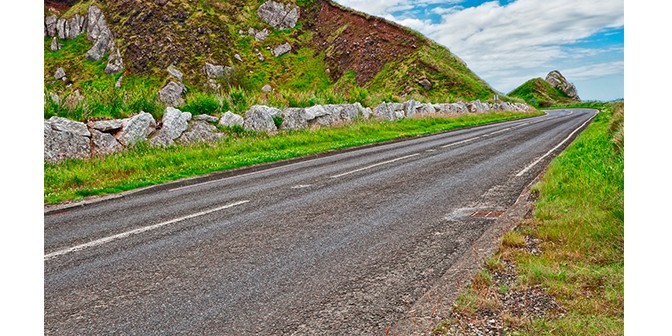Group will call for comprehensive transportation package planning — Bend 2030 presented the results of an online community survey on transportation at a recent Bend City Council meeting calling for the City of Bend to consider a comprehensive transportation package before putting a fuel tax on the ballot.
The online community survey, which was taken by 1,687 Bend residents, was the companion to a statistically valid survey conducted in June to more directly test attitudes about a fuel tax and other funding solutions for improvements to Bend’s transportation system. Bend 2030 and the City of Bend partnered to complete the surveys with the support of DHM Research, a Portland-based research strategies firm.
Both surveys showed strong support for a fuel tax and a studded tire fee as top solutions to Bend’s growing transportation challenges. The online survey also showed strong support for a tourism tax, such as on food and beverage. Both surveys also showed a high level of support for improving city streets and multimodal options such as more and safer bike lanes, pedestrian crossings and a more robust transit system.
“These surveys show that Bend residents expect strong action from the Bend City Council on two primary fronts—maintaining our streets and pivoting us toward a future where multimodal options like biking, walking and taking the bus are safer and more convenient choices,” said Erin Foote Marlowe, executive director of Bend 2030. “The surveys also show that a gas tax is just one piece of the transportation funding puzzle and that a comprehensive package should be considered by the Council before the gas tax question is put to voters.”
A complete look at funding transportation needs is critical as Bend once again faces rapid growth—by 2030 we expect 35,000, or 40 percent, more people to be living here plus tens of thousands of additional visitors each year. Among the challenges already facing our system are the declining quality of city streets, a transit system unable to provide robust service to due to lack of funding, an incomplete sidewalk grid, dangerous pedestrian crossings, and a system of bike lanes that feels unsafe to the users due to the close proximity of lanes to rapidly moving vehicles.
Our community must address these challenges head on in order to provide the quality of infrastructure necessary for a vibrant economy and the livability for our city, two key elements of our community’s Vision for 2030. The Vision, which was created by one in seven residents of Bend in 2006, calls for an interconnected system of highways, highways, roads, bikeways, and trails with a strong transit system and a wide variety of multi-modal transportation options. To achieve these goals, we must consider a comprehensive package of transportation system needs and funding solutions.
For more information about the Bend 2030 Livability Series: Transportation Initiative go to Bend2030.org or Facebook.com/Bend2030.
Funding for the Bend 2030 Livability Series is provided by the generous support of the Leadership Alliance of Bend 2030, including BendBroadband, Bend Park and Recreation District, Brooks Resources, Central Oregon Community College, the City of Bend, Deschutes Brewery, OSU-Cascades, St. Charles Health System, U.S. Forest Service, and Harcourt The Garner Group/Sunwest Builders/NorthWest Crossing.




